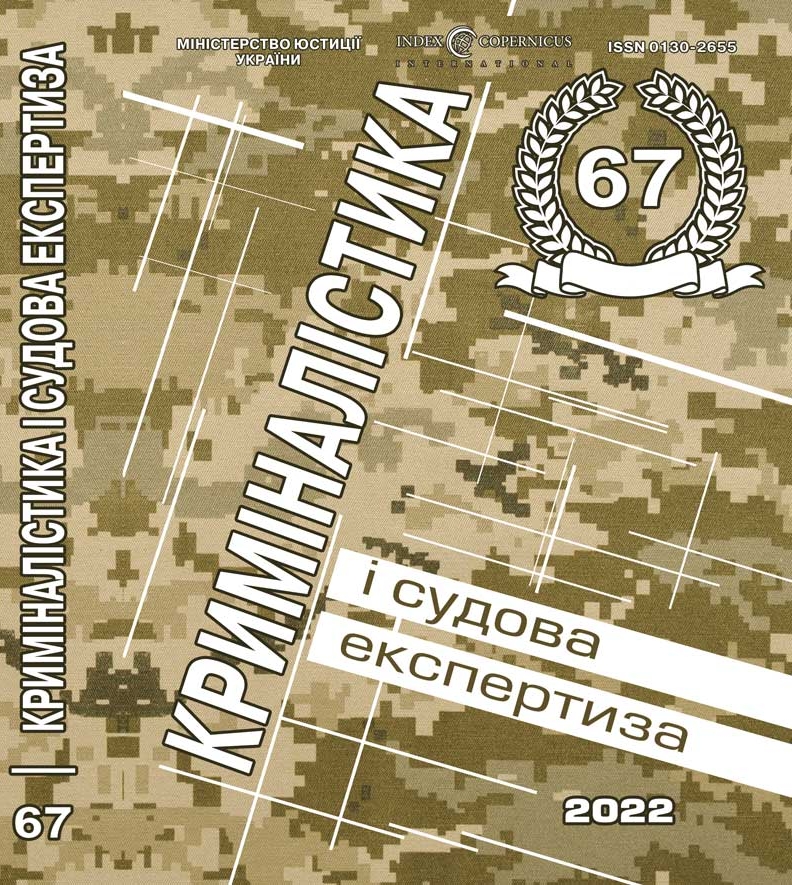
DOI: https://doi.org/10.33994/kndise.2022.67.22
O. Baulin
The article deals with the issues of legal regulation of the exhumation of a human corpse and reveals the procedure for conducting an examination of a corpse related to the exhumation during the pre-trial (preliminary) investigation, provided for by the current legislation of Ukraine. The author draws attention to the existing problems in the modern investigative practice of conducting an examination of a corpse associated with the exhumation and suggests ways to solve these problems.
It is noted that the examination of the corpse associated with the exhumation is one of the most complex investigative (detective) actions since it consists of several successive stages (initiation, with the adoption and execution by the prosecution of the decision to conduct it; taking measures to address the decision on the exhumation of the corpse to execution; direct implementation of this decision, etc.), each of which is also structured according to certain organizational, procedural, tactical and forensic criteria and other aspects of investigative activity.
The author of the article draws attention to the significant shortcomings of the legal regulation of the current Criminal Procedure Code of Ukraine of 2012 on the procedure for examining a corpse related to exhumation. Errors of the investigator in choosing the type of examination of the corpse, as well as violation of the procedure established by law for exhumation and the penetration of the prosecution into the tomb (crypt), which are private property, without the consent of the owner or the determination of the investigating judge (court), may subsequently lead to recognition by the court the inadmissibility of using the results of this investigative (detective) action in court as evidence.
The author proposes ways to solve these problems. In particular, it is proposed in the decision-making mechanism for the exhumation of a corpse to determine the place of close relatives or family members of the deceased in order to guarantee their right to respect for family and private life, in accordance with Article 8 of the Convention for the Protection of Human Rights and Fundamental Freedoms, the implementation of which should not depend entirely on the discretion of the pre-trial investigation bodies and the prosecutor’s office. This provision does not meet the requirements of international standards, in particular, the decision of the European Court of Human Rights in the case of Solska and Rybicka v. Poland (Solska and Rybicka v. Poland, nos. 30491/17 and 31083/17, 20 September 2018). The early introduction of the amendments proposed by the author to Article 239 of the Criminal Procedure Code of Ukraine will bring the national procedure for examining a corpse related to exhumation closer to international standards.
Key words: pre-trial investigation, investigative (search) action, exhumation of a corpse, inspection of a corpse, body identification, forensic examination.










